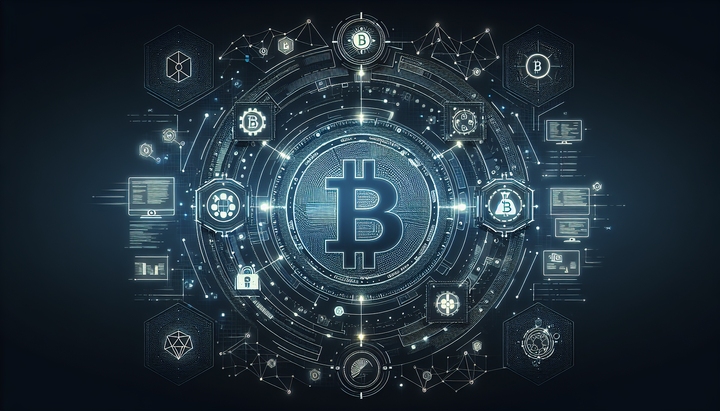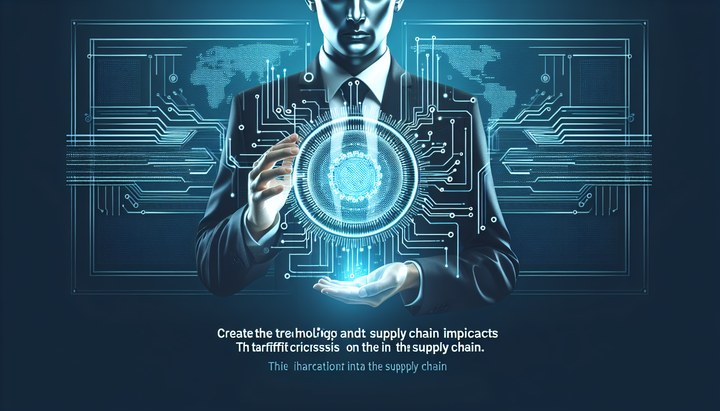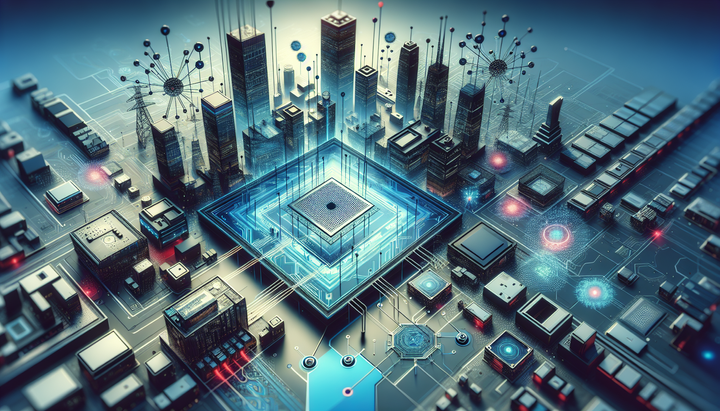Decentralized AI: Is It the Next Cybersecurity Shield?

Introduction to Decentralized AI in Cybersecurity
The digital era has always been characterized by rapid innovation in technology, and one of the most exciting developments in recent years is the evolution of decentralized artificial intelligence (AI). As businesses and governments grapple with increasingly sophisticated cyber threats, the need for more adaptive, resilient, and real‐time security solutions is more urgent than ever. Decentralized AI is emerging as a promising solution that leverages distributed data processing and machine learning, rather than relying on a central authority. This approach not only allows for enhanced privacy but also offers improved scalability and robustness against attacks.
How Decentralized AI is Reshaping Cybersecurity
Cybersecurity has traditionally depended on centralized systems that can be vulnerable to single points of failure. A breach in a centralized system can compromise the entire network, leaving critical data exposed. However, decentralized AI distributes the load, enabling systems to learn, adapt, and defend themselves without being entirely reliant on one central hub. As a result, cybersecurity frameworks are becoming more resilient against advanced persistent threats and zero-day vulnerabilities.
Some of the key benefits of employing decentralized AI in cybersecurity include:
- Resilience Against Attacks: When processing and decision-making are distributed, it becomes much harder for cybercriminals to target and compromise the entire network.
- Real-Time Response: Distributed nodes can analyze data and react to threats instantly, minimizing response times and mitigating the spread of attacks.
- Enhanced Privacy: Decentralized systems reduce the need to pool sensitive data in one central location, thereby lowering the risk of mass data breaches.
- Scalability: As networks grow, decentralized AI systems can more easily accommodate increased loads and emerging threat vectors.
The Science Behind Decentralized AI
At its core, decentralized AI leverages several advanced technologies and methodologies. The following components play a crucial role in how decentralized AI transforms cybersecurity:
- Federated Learning: This is a machine learning paradigm where multiple nodes (or institutions) train algorithms collectively without exchanging raw data. Instead, they share model updates which are aggregated to build a global model. This enhances privacy and data security while still benefiting from a larger dataset.
- Blockchain Integration: Many decentralized solutions incorporate blockchain to ensure data integrity and secure peer-to-peer interactions. The immutable nature of blockchain records can provide verifiable logs to track and audit AI-driven decisions and threat responses.
- Edge AI Processing: By placing AI capabilities at the edge of networks, processing occurs closer to the data source. This reduces latency and diminishes the chances of data interception during transmission.
- Distributed Consensus Mechanisms: These algorithms, fundamental to decentralized networks, ensure that decisions made by AI nodes are consistent, reliable, and resistant to manipulation.
Industry Adoption and Use Cases
Several sectors are already experimenting with and deploying decentralized AI systems to enhance their cybersecurity protocols. Here are some real-world applications and case studies demonstrating its potential:
Financial Services
Banks and cryptocurrency platforms are highly attractive targets for cybercriminals due to the large volumes of transactions and sensitive financial data involved. Decentralized AI is being used to monitor transactions in real time, detect suspicious activities, and alert authorities before any significant breaches occur. This helps in reducing fraudulent transactions and mitigating risks associated with cyber fraud.
Government and Public Infrastructure
Government agencies and public infrastructure systems require robust security frameworks to protect classified information and critical services from cyberattacks. By implementing decentralized AI, these institutions can ensure that even if one node is compromised, the entire network does not collapse. In addition, federated learning models enable collaborative threat intelligence sharing among agencies without violating data privacy norms.
Healthcare Sector
Hospitals and healthcare providers face devastating consequences from data breaches, including the exposure of patient records and medical research data. Decentralized AI solutions help detect anomalies in network traffic, safeguard patient data, and ensure that hospital networks remain secure against increasingly sophisticated cyberattacks.
Technical and Operational Challenges
While decentralized AI presents numerous advantages, its implementation is not without challenges. Technical hurdles and operational complexities need to be addressed before widespread adoption is feasible. Some of these challenges include:
- Integration with Legacy Systems: Many organizations rely on existing centralized cybersecurity frameworks. Integrating decentralized AI may require overhauling infrastructure, which can be both costly and time-consuming.
- Data Heterogeneity: The nodes within a decentralized network may operate with diverse data types and standards, making it challenging to create uniform models that work across all systems.
- Trust and Regulatory Concerns: As decentralized AI systems distribute data and processing across multiple nodes, ensuring regulatory compliance and building trust among stakeholders remains a significant concern.
- Scalability and Resource Management: Although decentralized systems can theoretically handle growth better than centralized models, they still require sophisticated resource management strategies to prevent inefficiencies or bottlenecks.
Expert Opinions and Future Outlook
Leading experts in the fields of AI and cybersecurity are optimistic about the future of decentralized technologies. Research from reputable institutions like MIT Tech Review, IEEE, and Arxiv suggests that decentralized AI can fundamentally shift how organizations approach threat detection and response. According to a recent whitepaper published by an industry-leading cybersecurity firm, "Decentralized systems not only enhance technological robustness but also offer a paradigm shift towards a more democratized form of cyber defense."
Furthermore, case studies in AI-driven cybersecurity have shown that decentralized approaches can reduce response times by up to 40% compared to traditional centralized methods. Experts also emphasize that the integration of blockchain, federated learning, and edge AI processing will accelerate these improvements, paving the way for next-generation cybersecurity solutions.
Innovative Strategies for Implementing Decentralized AI
Organizations looking to adopt decentralized AI for cybersecurity should consider the following strategies to overcome potential hurdles:
- Conduct a Thorough Audit: Begin by assessing current cybersecurity frameworks to identify vulnerabilities and areas where decentralized systems can provide an advantage.
- Invest in Research and Development: Stay abreast of emerging trends by collaborating with academic institutions and participating in industry consortiums focused on decentralized AI and cybersecurity innovations.
- Develop a Phased Implementation Plan: Rather than a complete overhaul, integrate decentralized AI components gradually. Pilot projects in less critical segments can help refine the technology before broader deployment.
- Ensure Regulatory Compliance: Given the sensitive nature of cybersecurity data, ensure that decentralized AI implementations adhere to local and international data protection regulations.
- Focus on User Education: Train IT staff and security teams on the nuances of decentralized systems to maximize their effectiveness and encourage seamless integration.
Case Study: A Financial Institution's Journey to Decentralized Cyber Defense
Consider the example of a mid-sized financial institution that faced recurring phishing attacks and internal data breaches. After extensive research, the institution decided to pilot a decentralized AI platform focused on real-time threat detection. The initiative involved:
- Collaborating with a technology partner specializing in federated learning.
- Implementing edge AI processing nodes at various branch offices.
- Integrating blockchain for secure audit trails and transaction verification.
The results were promising: within six months, the institution recorded a 35% reduction in successful attacks, and incident response times dropped significantly. The success of the pilot project encouraged the institution to expand the decentralized AI platform across all its departments, leading to a more secure and agile cybersecurity posture.
Impact on Global Cybersecurity Trends
Decentralized AI is influencing global cybersecurity trends in several critical ways. By moving security decision-making closer to the data source, organizations everywhere are beginning to adopt more agile and dynamic threat response mechanisms. This shift is resulting in:
- Enhanced International Collaboration: Decentralized models encourage data sharing and collective intelligence among multinational companies and government agencies, facilitating a united front against cyber threats.
- Increased Innovation in Security Solutions: The adoption of decentralized AI drives competition among technology vendors, leading to rapid advancements in security software and hardware innovations.
- Better Preparedness for Future Threats: As cybercriminals become more sophisticated, decentralized AI equips organizations with the tools they need to anticipate and counter emerging attack vectors effectively.
The Road Ahead: Research, Investment, and Collaboration
Looking to the future, the integration and expansion of decentralized AI in cybersecurity will require continued research, significant investments, and unprecedented levels of industry collaboration. Academic research, technological innovations, and public-private partnerships will be the cornerstones of progress in this domain.
Investment in decentralized AI technologies is expected to surge in the coming years. Venture capitalists and corporate R&D divisions alike are pouring funds into startups and research initiatives that focus on distributed computing, blockchain security measures, and federated learning models specifically tailored for cybersecurity applications. As these investments bear fruit, we can expect decentralized AI to become a standard feature in cybersecurity arsenals around the world.
Conclusion
Decentralized AI is poised to reshape the cybersecurity landscape through its innovative approach to data processing and threat detection. By harnessing the power of federated learning, blockchain, and edge AI processing, organizations can build defenses that are inherently more resilient, scalable, and adaptive to emerging cyber threats. While challenges remain—such as integrating with legacy systems and ensuring regulatory compliance—the benefits and potential of decentralized AI far outweigh these hurdles.
As we move toward a future of increasingly interconnected networks and digital ecosystems, the adoption of decentralized AI in cybersecurity promises to not only protect digital assets more effectively but also empower organizations with a proactive, intelligence-driven approach to security. The era of centralized vulnerability is nearing its end, and with decentralized AI, the next generation of cyber defense is just beginning.
In summary, decentralized AI offers an exciting glimpse into a future where technology and security converge to create systems that are smarter, more resilient, and better equipped to handle the evolving landscape of cyber threats. Organizations that embrace these emerging technologies will be well-positioned to protect their digital frontiers while contributing to a safer, more secure global digital infrastructure.



Comments ()